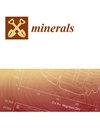The Tectonic Framework of Parecis Basin: Insights from a Multiphysics Interpretation Workflow
IF 2.2
4区 地球科学
Q2 GEOCHEMISTRY & GEOPHYSICS
引用次数: 0
Abstract
The Parecis Basin, one of Brazil’s most extensive intracratonic basins, holds significant potential for hydrocarbon exploration. Despite its vast size, Parecis has yet to be extensively explored, with only five wildcat wells drilled. So far, no commercial discoveries have been announced. Regional studies have suggested Paleozoic sedimentation, while recent analyses have revealed a Neoproterozoic infill. Its tectonic model is still a matter of debate, and to date, no detailed structural map for the whole basin has been published. The present work proposes a new detailed structural map of the Parecis Basin based on a four-step interpretation workflow integrating seismic and gravimetric data. The first step includes converting the public 2D seismic lines to the depth domain. The second step is estimating the residual Bouguer anomaly, where the computed residual anomalies should relate to the basin’s tectonic features. The third step comprises the 2D forward modeling of the gravimetric anomalies using the 2D seismic interpretation as a constraint. The final step compiled all the interpreted features into our new structural map. This map reveals the top of the basement, forming a complex framework of horsts and grabens. Normal faults define the main structural style in the basin. Further, we could recognize thick, high-density bodies embedded in the crystalline basement. These bodies consist of Orosian–Calimian (1.8–1.6 Ga) mafic and ultramafic rocks, which may be a potential source for hydrogen exploration in the basin. Subsequent geophysical and geochemical surveys will assess the hydrogen potential in the area.帕雷西斯盆地的构造框架:多重物理解释工作流程的启示
帕雷西斯盆地是巴西最广阔的地壳内盆地之一,具有巨大的油气勘探潜力。尽管帕雷西斯盆地幅员辽阔,但尚未得到广泛勘探,仅钻探了五口野油井。迄今为止,尚未宣布任何商业发现。区域研究表明该地区为古生代沉积,而最近的分析则揭示了新近纪的填充。该盆地的构造模式仍有争议,迄今为止,尚未公布整个盆地的详细构造图。本研究基于地震和重力测量数据的四步解释工作流程,提出了新的帕雷西斯盆地详细构造图。第一步包括将公开的二维地震线转换到深度域。第二步是估算残余布格尔异常,计算出的残余异常应与盆地的构造特征有关。第三步是以二维地震解释为约束,对重力异常进行二维正演建模。最后一步是将所有解释特征汇编成新的构造图。该图揭示了基底的顶部,形成了复杂的地角和地堑框架。正断层是盆地的主要构造样式。此外,我们还发现了嵌入结晶基底的厚而高密度的岩体。这些岩体由奥罗西亚-卡利米亚(1.8-1.6 Ga)岩浆岩和超岩浆岩组成,可能是盆地氢气勘探的潜在来源。随后的地球物理和地球化学勘测将评估该地区的氢潜力。
本文章由计算机程序翻译,如有差异,请以英文原文为准。
求助全文
约1分钟内获得全文
求助全文
来源期刊

Minerals
MINERALOGY-MINING & MINERAL PROCESSING
CiteScore
4.10
自引率
20.00%
发文量
1351
审稿时长
19.04 days
期刊介绍:
Minerals (ISSN 2075-163X) is an international open access journal that covers the broad field of mineralogy, economic mineral resources, mineral exploration, innovative mining techniques and advances in mineral processing. It publishes reviews, regular research papers and short notes. Our aim is to encourage scientists to publish their experimental and theoretical results in as much detail as possible. There is no restriction on the length of the papers. The full experimental details must be provided so that the results can be reproduced.
 求助内容:
求助内容: 应助结果提醒方式:
应助结果提醒方式:


